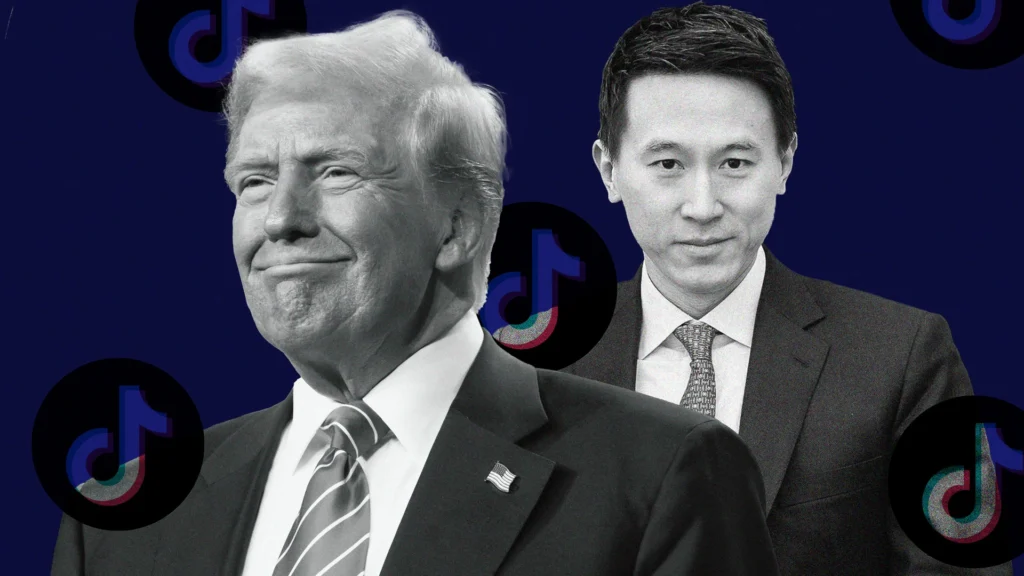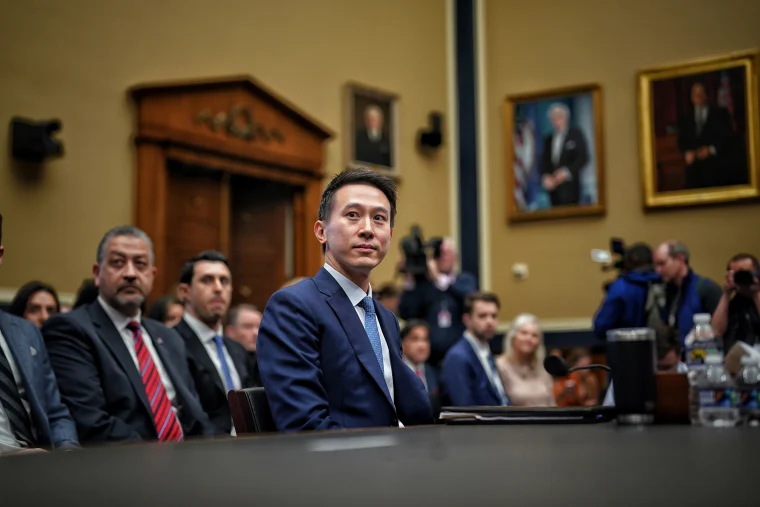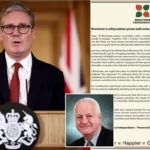In a surprising turn of events, former President Donald Trump recently hosted TikTok’s CEO at his opulent Mar-a-Lago estate. This meeting comes at a critical time as TikTok faces potential federal bans in the United States due to national security concerns. With millions of American users relying on the platform for entertainment, communication, and business, the stakes couldn’t be higher. The meeting not only highlights Trump’s continued influence but also raises questions about the future of TikTok in the U.S. market.
Trump Hosts TikTok CEO to Mar-a-Lago for Talks


Former President Trump has never shied away from the spotlight, and his latest social media saga is no exception. Hosting TikTok CEO Shou Zi Chew at Mar-a-Lago, Trump made headlines as he navigates a complex relationship with the popular video-sharing app. The gathering symbolized an unexpected alliance, as the former president and the tech executive came together amid looming federal regulations that could ban TikTok altogether.
The choice of venue, Mar-a-Lago, a hub for Trump’s social and business dealings, sets the stage for significant discussions that could impact not only TikTok but the entire social media landscape. The former president’s warm welcome was marked by a mix of charm and business acumen, as he has often expressed an understanding of the app’s potential for reaching younger voters—a demographic that plays an essential role in American elections.
As Trump continues to assert his influence within the Republican Party and beyond, this meeting reflects how he remains a key player in the dialogue surrounding technology companies. With a growing wave of bipartisan concerns over data privacy and national security, the stakes for TikTok couldn’t be higher, and Trump’s involvement adds a layer of complexity to the ongoing debate.
This meeting not only highlights the significance of TikTok in today’s digital landscape but also emphasizes how former leaders can still impact the tech industry, especially in navigating federal regulations. As they exchanged ideas, one thing was clear: both sides recognize the importance of collaboration in the face of potential federal action against the app.
The Federal Ban: What’s at Stake for TikTok?


The prospect of a federal ban on TikTok has sent shockwaves through the app’s community of over 100 million American users. As concerns mount over data privacy and allegations of Chinese government influence, lawmakers are increasingly vocal about the need for stricter regulations on foreign-owned apps. A ban would not only disrupt users’ daily lives but could also have significant implications for businesses that utilize the platform for marketing and outreach.
For TikTok, the stakes are monumental. The app serves as a vital tool for creators, influencers, and brands, all of whom rely on it for income and engagement. A federal ban would jeopardize livelihoods and stifle the creativity of countless users who have built their platforms on TikTok. Additionally, it would send a message to other foreign tech companies about the unpredictability of operating in the U.S. market.
The potential fallout from a ban extends beyond individual users; it poses a threat to the broader tech ecosystem. Companies investing in advertising on TikTok might reconsider their strategies, leading to a ripple effect that impacts revenue streams across numerous industries. On a societal level, the loss of TikTok would eliminate a unique space for cultural exchange, creativity, and community-building that has flourished on the platform.
As Congress evaluates the future of TikTok, the urgency for a resolution grows. The platform has attempted to address concerns through transparency initiatives and partnerships with U.S. companies, but will it be enough to quell fears? The tension between data privacy and national security remains a formidable challenge as TikTok fights to secure its future in America.
Inside the Meeting: What Happened Behind Closed Doors


While the details of the meeting between Trump and Chew remain somewhat under wraps, insiders suggest that discussions revolved around the future of TikTok in the U.S. and the political landscape that could affect its operations. Given Trump’s experience with the app during his presidency, he likely offered insight into navigating the challenges posed by lawmakers.
The meeting reportedly included talks about data privacy safeguards and potential partnerships that could reassure U.S. officials about TikTok’s operations. Chew was expected to emphasize the steps TikTok has taken to protect user data and maintain transparency—a key concern for lawmakers as they weigh the possibility of a ban. Trump’s keen understanding of public relations may have also influenced the dialogue, especially regarding how to better connect with American users and alleviate fears.
Additionally, Trump’s team may have explored potential collaborations, suggesting ways TikTok could work with U.S. companies to bolster its presence as a positive force in the American tech landscape. Such partnerships could serve as a counter-narrative to the criticisms levied against the app, showcasing its commitment to American values and security.
While the outcome of the meeting remains uncertain, the very fact that these two figures convened suggests a willingness to engage in a dialogue that could shape TikTok’s future. With Trump as a prominent voice in politics, his support could lend TikTok a much-needed lifeline amid ongoing scrutiny from federal regulators.
Future of TikTok: Can Trump Help Save the App?


As federal scrutiny intensifies, the question remains: Can Donald Trump play a role in saving TikTok from a potential ban? While his relationship with the platform has been rocky, his recent outreach signals a possible change in strategy. By engaging with TikTok’s leadership, Trump may be positioning himself as a champion for the app, advocating for its value in American culture and its significance for the younger generation.
Trump’s influence in the Republican Party could prove crucial in shifting the narrative around TikTok. If he can effectively argue that TikTok is not just a tool for entertainment but also a viable platform for economic growth and innovation, he could sway lawmakers who are on the fence about the app. Additionally, his charismatic approach could help bridge the gap between the tech world and policymakers, fostering a more constructive dialogue.
Moreover, the prospect of election campaigns in the near future makes engaging with social media platforms like TikTok all the more crucial. As candidates increasingly utilize digital platforms to connect with voters, TikTok’s reach among younger demographics cannot be overlooked. Trump’s involvement could bolster TikTok’s position as a key player in political discourse, further complicating the argument for a ban.
Ultimately, whether Trump can save TikTok hinges on his ability to navigate the complexities of national security concerns while promoting the app’s contributions to American society. The future of TikTok may depend not only on regulatory outcomes but also on the relationships forged between tech leaders and political figures in the months to come.
As discussions continue regarding the potential federal ban on TikTok, the meeting between Donald Trump and the app’s CEO serves as a reminder that the political and technological landscapes are intricately linked. The stakes are high for TikTok users, businesses, and creators who rely on the platform. While the future remains uncertain, the dialogue initiated at Mar-a-Lago could pave the way for a more positive relationship between lawmakers and tech companies, providing hope that TikTok will continue to thrive in the U.S.














